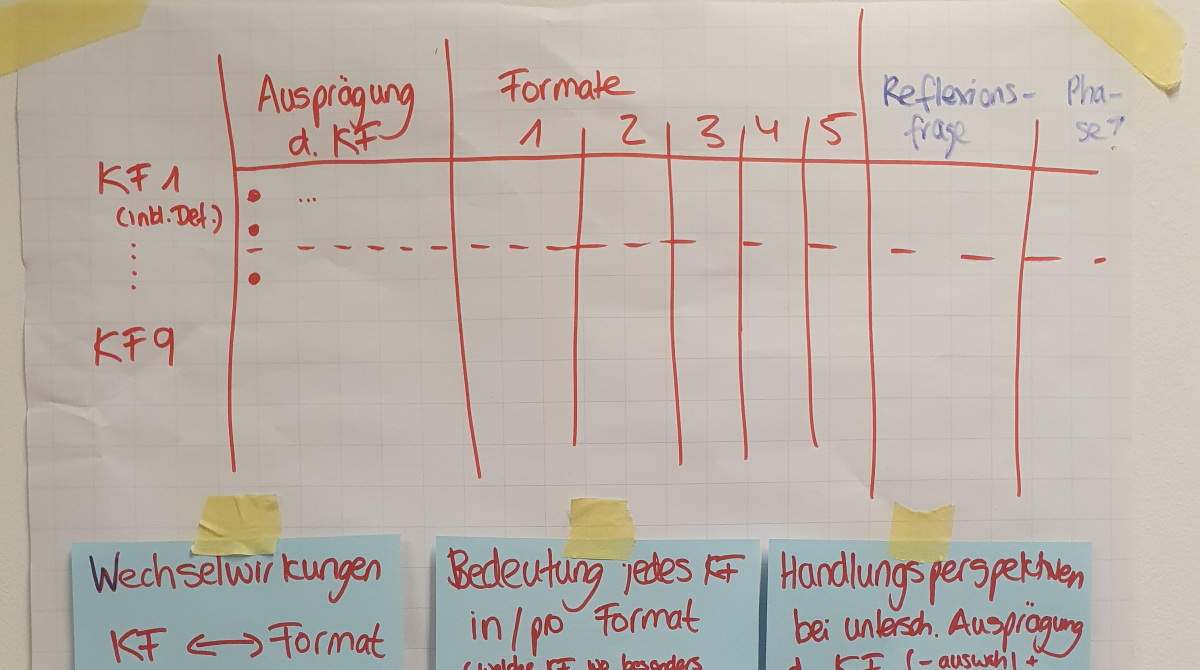Intersection 2 represents the connecting research of topic lines 3 and 4. On that account, Institute for Technology Assessment and Systems Analysis (ITAS) at the Karlsruhe Institute of Technology (KIT) and the Oeko-Institute Freiburg are working together on the context dependency of formats.
Organization of the interface work
Intersection 2 is formed from topic lines 3 “Context Dependencies” and 4 “Innovative Formats” in cooperation between ITAS and Oeko-Institute Freiburg. It deals with the context dependency of formats and methods. We ask which contextual conditions of a research project are particularly relevant for successful transdisciplinary project work and how formats can be selected and adapted according to these conditions. We are also interested in how a common understanding of context can be established between different actors.
Connection of topic lines 3 and 4
Intersection 2 builds on the realization that a context-sensitive selection and adaptation of formats and methods is required so that these can be used profitably for the research and project process. Topic line 3 introduces the conceptualization approach of the concept developed in the first phase, which identifies nine context factors, e.g. in the areas of actor relations and institutional and cultural structures. Topic line 4 provides systematic descriptions of five different formats (Artistic Formats, Real-World Laboratories, Theory of Change, Ten Steps, Transments) and the methods integrated into them, which provide initial indications of their suitability for specific contexts. The results of both topic lines will be brought together and incorporated into a reflection guide, which is intended to support project managers in the context-sensitive selection of formats. In order to make these guidelines practicable, interim results from intersection 2 will be discussed in a workshop with project managers.
Objectives
The processing of the data already collected within the topic lines and the workshop based on it aims to:
- sensitize researchers and practitioners to the necessity of adapting formats and methods to the context and to select them in a context-sensitive way,
- facilitate an exchange of experiences within the network,
- enable actors to better understand contextual conditions and to be able to select and/or adapt methods in a context-sensitive way.
Photo: Analysis matrix for interface 2
If you have any questions or suggestions, please get in touch with the contact persons for topic line 3 and topic line 4.

